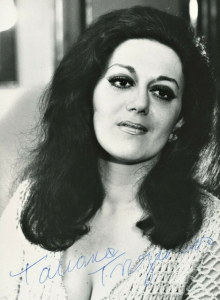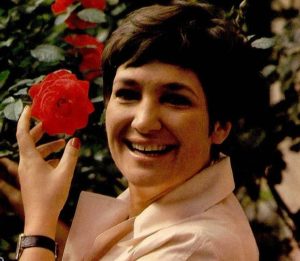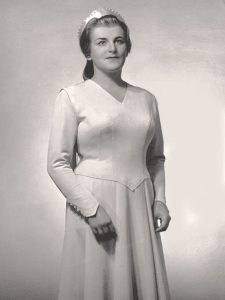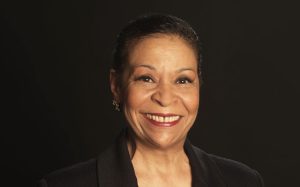Podcast: Play in new window | Download (Duration: 1:10:35 — 77.3MB) | Embed
Subscribe: Spotify | TuneIn | RSS | More
I am taking a short break before posting the final in my Mexican Opera Singers miniseries to bring you a compilation episode that is sure to get your blood flowing. I’ve entitled it “Mezzos on the Verge,” and that is exactly what it is: mezzo-sopranos portraying characters in extreme emotional situations. Whether it is Dalila (portrayed by Ebe Stignani) summoning the pagan gods to give her strength to conquer an infatuated strongman; Elena Obraztsova or Nadezhda Obukhova casting spells or predicting the future; Giulietta Simionato as Santuzza confronting Franco Corelli’s faithless Turiddu on the steps of the Sicilian village church on Easter morning; Gwendolyn Killebrew as Waltraute imploring help of her sister Brünnhilde to circumvent the Twilight of the Gods; Jean Madeira as Klytemnästra desperately seeking rest for her troubled soul; Shirley Verrett as Sapho preparing to throw herself into the sea; or Tatiana Troyanos as Dido dying of a broken heart – there’s something for each of us who might be feeling themselves in over their heads these days. Unlike most of us. however, (and luckily for us as well), each of these magnificent mezzos is expressing that anguish in glorious song.
Countermelody is a podcast devoted to the glory and the power of the human voice raised in song. Singer and vocal aficionado Daniel Gundlach explores great singers of the past and present focusing in particular on those who are less well-remembered today than they should be. Daniel’s lifetime in music as a professional countertenor, pianist, vocal coach, voice teacher, and journalist yields an exciting array of anecdotes, impressions, and “inside stories.” At Countermelody’s core is the celebration of great singers of all stripes, their instruments, and the connection they make to the words they sing. By clicking on the following link (https://linktr.ee/CountermelodyPodcast) you can find the dedicated Countermelody website which contains additional content including artist photos and episode setlists. The link will also take you to Countermelody’s Patreon page, where you can pledge your monthly support at whatever level you can afford.



